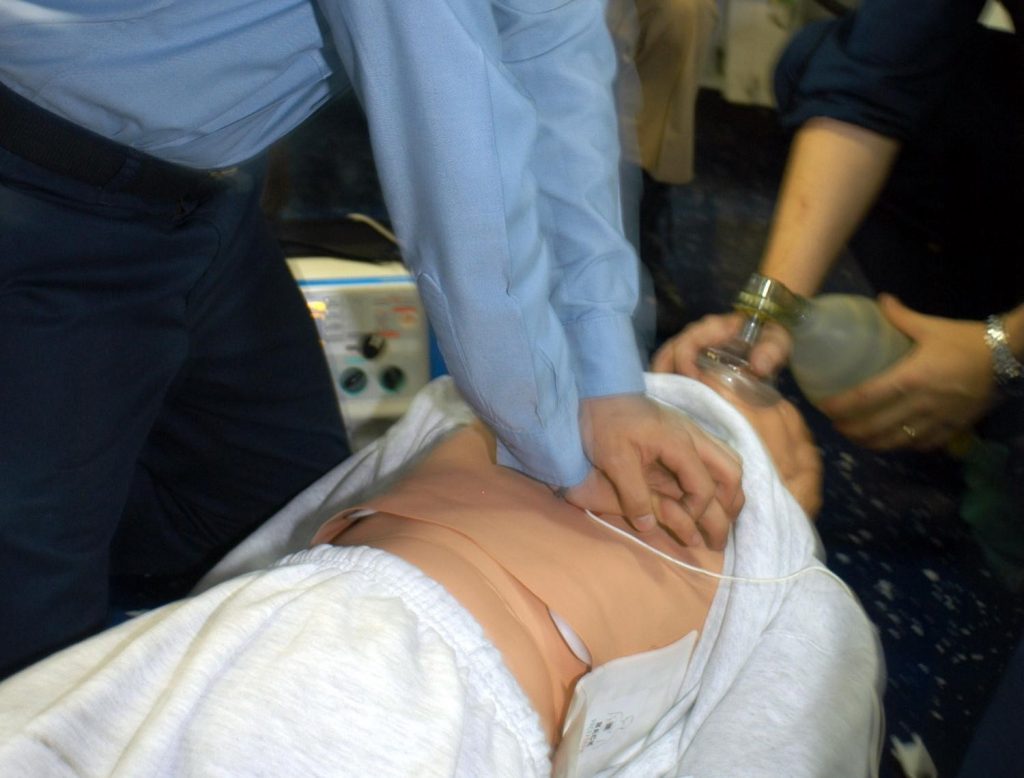Online CPR Certification Blog
Sudden Cardiac Arrest in Remote Locations: What Should You Do When Help is Hours Away?
Date: March 11th, 2024
If you love hiking, camping, or just wandering far from the city buzz, this article is tailor-made for you. Let’s talk about something serious, though—Sudden Cardiac Arrest (SCA). It’s a condition where the heart suddenly stops beating, and it’s as scary as it sounds.
Imagine facing this when the nearest hospital is miles away. Yep, the thought itself is terrifying.
The Reality of Remote Emergencies
Why Timing is Everything
You’ve probably heard of the “Golden Hour” in medical emergencies. It’s that critical one-hour window where immediate medical treatment significantly boosts survival chances. For SCA, the clock ticks even faster. Survival chances drop by 10% for every minute that passes without intervention.
The Unique Challenges of Remote Locations
Being far from a medical facility can make those crucial minutes feel like an eternity. Here, your two biggest challenges are time and resources.
| Challenges | Why It’s a Problem |
| Time | Delay in getting professional help reduces survival rates |
| Resources | Limited availability of specialized medical equipment |
Immediate Actions: A Step-by-Step Guide
What to Do if Someone Suffers SCA and Help is Hours Away?
Look, if someone faces an SCA and you’re hours away from help, your immediate action should be to call for emergency help if possible, assess the situation, and start CPR. If an AED (Automated External Defibrillator) is available, use it. Then, maintain the victim’s body temperature until help arrives.
Prioritize Calling for Help
If you’ve got a radio or a satellite phone, now’s the time to use it. Reach out to emergency services or any nearby medical facility. No devices? Use emergency signaling like flares or SOS signs.
Assess the Situation Quickly
Look for responsiveness. Is the person conscious? Do they have a pulse? Shout for help if there’s anyone around. Every second counts.
Starting CPR Immediately
Begin CPR. Place your hands in the middle of the person’s chest and push hard and fast. Keep a rhythm of 100-120 compressions per minute.
Using an AED
If an AED is within reach, follow its audio instructions carefully. No AED? Continue with CPR until help arrives.
Additional Quick Actions
- Keep the victim insulated; use your jacket or sleeping bag to keep them warm.
- Administer any available medications like aspirin if you suspect a heart issue.
Preemptive Measures for Remote Adventures If you’ve been out in the wilderness you know preparation is key. Equip yourself with the right skills and tools before setting off.

Image alt text: Sudden Cardiac Arrest in Remote Locations
Author credit: By U.S. Navy photo by Photographer's Mate Airman Apprentice Nicholas Garrett. – This image was released by the United States Navy with the ID 040421-N-8090G-001 (next).This tag does not indicate the copyright status of the attached work. A normal copyright tag is still required. See Commons:Licensing.العربية ∙ বাংলা ∙ Deutsch ∙ Deutsch (Sie-Form) ∙ English ∙ español ∙ euskara ∙ فارسی ∙ français ∙ italiano ∙ 日本語 ∙ 한국어 ∙ македонски ∙ മലയാളം ∙ Plattdüütsch ∙ Nederlands ∙ polski ∙ پښتو ∙ português ∙ slovenščina ∙ svenska ∙ Türkçe ∙ українська ∙ 简体中文 ∙ 繁體中文 ∙ +/−, Public Domain, https://commons.wikimedia.org/w/index.php?curid=8211281
A Checklist of Essentials
- First-aid kit
- AED
- Satellite phone or radio
- Emergency medication
Acquiring Necessary Skills Before You Go
Get certified in CPR and take a wilderness first aid course. Seriously, this could be a lifesaver, quite literally.
Navigating the Ethical and Legal Landscape
Good Samaritan laws generally protect people who assist in emergencies. However, you’ve got to act “reasonably,” which is why it’s crucial to know what you’re doing.
Real-Life Cases: What Worked and What Didn’t
I’ll never forget a camping trip with my friends where a nearby group faced a cardiac emergency. They had an AED, and someone knew CPR. Those two factors alone saved a life that day. We can’t bank on luck, but we can be prepared.
Beyond Immediate Actions: What Next?
If help is still hours away, your role isn’t over.
- Continue monitoring the victim.
- Make evacuation plans.
- Keep in touch with emergency services for next steps.
Last Words
Preparing for the worst doesn’t mean you’re paranoid; it means you’re smart. Equip yourself with both knowledge and supplies before venturing into the wild.
FAQs
What is Sudden Cardiac Arrest?
It’s an abrupt loss of heart function and consciousness. It’s not a heart attack.
How crucial is timing in treating SCA?
Extremely. Survival rates drop 10% for every minute without treatment.
What if I can’t call for help?
Use visual or sound signals like flares, horns, or SOS signs.
Is CPR effective in treating SCA?
Yes, especially when an AED is not available. It circulates blood and keeps vital organs alive.
What should be in my emergency medical kit?
A basic first aid kit, aspirin, and emergency contacts. An AED and satellite phone are excellent additions.
Remember, when adventuring in remote locations, being prepared can mean the difference between life and death. Happy travels and stay safe!